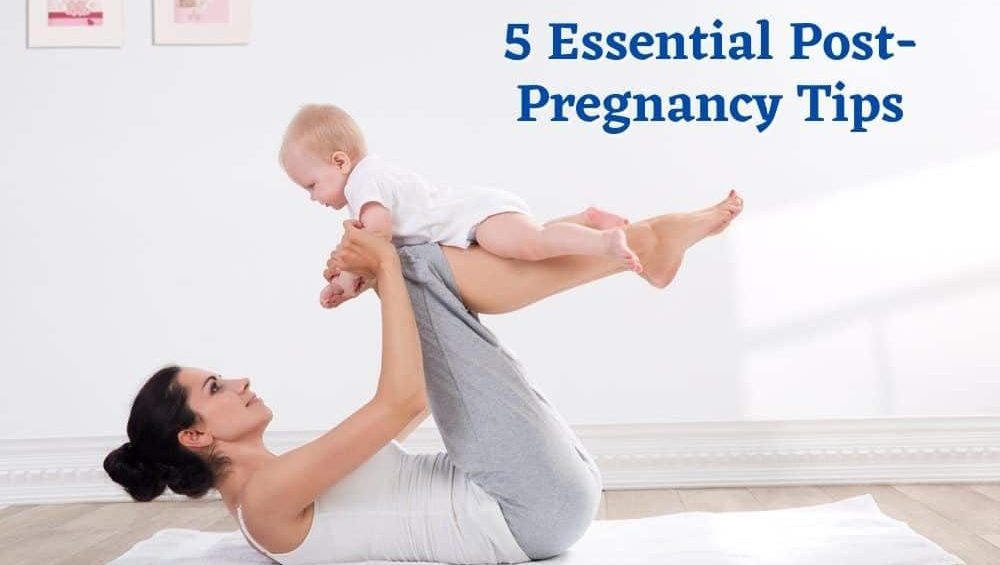Congratulations on becoming a new mother! You’ve been through an incredible journey, and now that your baby is here, it’s time to focus on your post-pregnancy health. After giving birth, it’s essential to take care of yourself to ensure you recover well and can focus on bonding with your newborn. Here are five best tips to follow after post-pregnancy.
1. Rest and Recover
It’s not uncommon for new mothers to feel tired, overwhelmed, and physically drained after giving birth. During this time, getting plenty of rest and allowing your body time to recover is crucial. Your body has undergone tremendous changes during pregnancy, and it needs time to adjust and heal.
It’s essential to avoid lifting heavy objects and limit your physical activity until you feel strong enough to resume. Focus on getting enough sleep and taking naps when your baby is sleeping. Sleeping when the baby sleeps can help you catch up on lost sleep and reduce stress levels.
Recovering after childbirth can take weeks, if not months. Be kind to yourself and listen to your body. If you feel tired, take a break, and rest. If you experience pain or discomfort, talk to your doctor. Don’t push yourself too hard and be patient with the healing process.

2. Eat a Healthy Diet
Eating a healthy, balanced diet is essential for both you and your baby, even after delivery. It’s important to focus on consuming nutrient-dense foods that will help you recover and boost your energy levels. A healthy diet can also help you cope with the physical and emotional demands of being a new mother.
When breastfeeding, your body needs extra calories to produce milk for your baby. Make sure to include lean proteins, fruits, vegetables, and whole grains in your diet. These foods are rich in vitamins, minerals, and fiber, which will aid in the healing process and provide you with the necessary energy you need to care for your newborn.
It’s also important to stay hydrated by drinking plenty of fluids. Aim for at least eight glasses of water a day and consider adding other hydrating drinks like herbal tea or coconut water to your diet. Drinking plenty of fluids will help to flush out toxins from your body and keep you feeling refreshed and energized.

3. Stay Active
After giving birth, it’s essential to wait for your doctor’s approval before beginning any physical activity. Once you are cleared for physical activity, gentle exercise like walking or yoga can help you regain strength and stamina.
Exercise releases endorphins, which help alleviate postpartum depression, and boosts your mood. Even light exercise can help you feel more energized and improve your mental health. Taking a walk outside with your baby can also help to reduce stress and provide a change of scenery.
Don’t push yourself too hard, especially if you’re feeling tired or experiencing pain or discomfort. Start with light exercises and gradually increase the intensity as you feel comfortable. Listen to your body and stop if you feel any pain or discomfort.

4. Seek Support
Adjusting to life with a new baby can be overwhelming. Don’t hesitate to reach out to your partner, family, or friends for help. Having a support system in place can help you cope with the emotional and physical demands of being a new mother.
You can also consider joining a support group or speaking with a therapist who specializes in postpartum care. Postpartum depression is a common condition that affects many new mothers. Seeking help early can help you manage your symptoms and prevent the condition from getting worse.
Taking care of your mental health is just as important as taking care of your physical health. It’s essential to take time for yourself and engage in activities that make you feel happy and fulfilled.

5. Bond with Your Baby
Bonding with your baby is an essential part of postpartum care. The bonding process is a vital component in building a healthy and loving relationship with your child. It involves creating a strong emotional connection with your baby, which can have significant benefits for both you and your baby.
There are several ways to bond with your baby, including:
Skin-to-Skin Contact: Holding your baby skin-to-skin can help promote bonding and improve breastfeeding success. Skin-to-skin contact also helps regulate your baby’s body temperature, heart rate, and breathing.
Eye Contact: Maintaining eye contact with your baby while feeding or playing can help strengthen your emotional connection. It also helps your baby develop social and cognitive skills.
Talking and Singing: Talking and singing to your baby can help stimulate their brain development and language skills. It also helps your baby recognize your voice and feel secure.
Baby Massage: Massaging your baby can help promote relaxation, reduce stress, and improve sleep. It’s also a great way to bond with your baby and promote skin-to-skin contact.
Babywearing: Wearing your baby in a carrier or wrap can help promote bonding and make it easier to bond while on the go. It also helps your baby feel secure and provides an opportunity for skin-to-skin contact.

For more information visit: K.K Speciality Clinic & Hospital – Gynecology, Maternity, Orthopedic Nursing Home & Multispeciality Hospital in Dahisar: Ground Floor, A Wing, Sunder Baug CHSL, Swami Vivekananda Marg, Opp. Manav Kalyan Kendra, Dahisar East, Mumbai – 400068
Contact -Phone: 99307 75754
Appointments: https://kkspecialityhospital.com/

